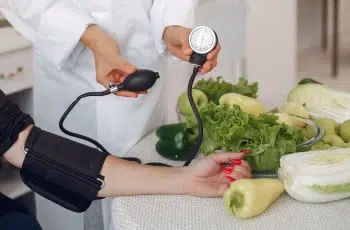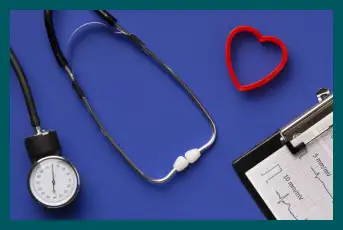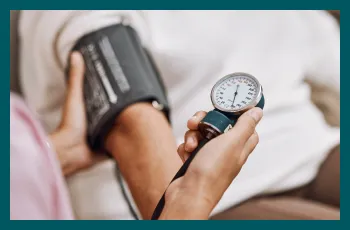- Home
- /
- Health Conditions
- /
- Low Blood Pressure Treatment
Low Blood Pressure
Low blood pressure can cause dizziness, fainting, and fatigue, affecting daily life and overall well-being. Our AHPRA-accredited online doctors and medical practitioners are available 24/7 to provide expert advice and support.
4.6/5 based on 28000+ reviews
How our doctors can help
Doctor consultation
100% Bulk Billed*
Sick Certificate
From $14.90
Specialist referrals
From $39
Medical prescriptions
100% Bulk Billed*
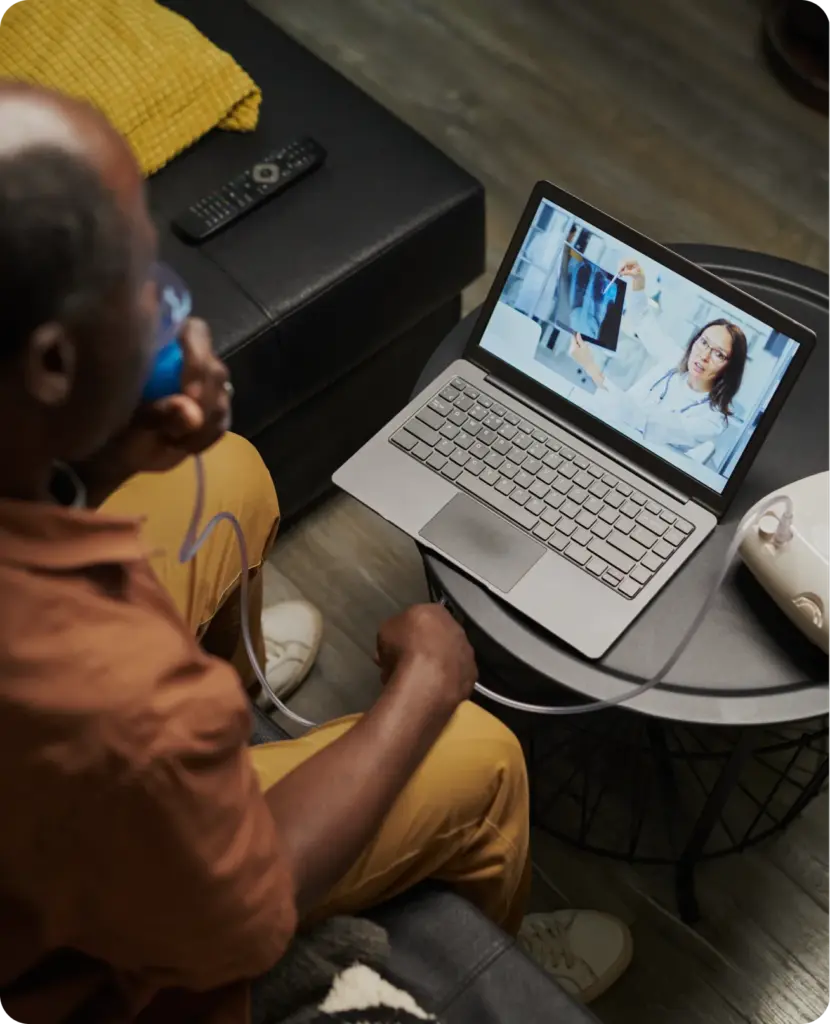
When to consult a doctor for low blood pressure?
If symptoms are persistent or affect daily life
See a doctor if you experience frequent dizziness, confusion, or severe fatigue, as these may indicate ongoing low blood pressure affecting blood flow.
If blood pressure drops suddenly
Consult a GP if you notice a sudden drop in blood pressure after standing up or eating, as this can increase the risk of falls or injury.
If severe or emergency symptoms occur
Seek immediate medical attention if you develop shock symptoms such as cold, clammy skin, rapid breathing, a weak pulse, or persistently low blood pressure readings.
This guide does not replace professional care. Consult a doctor to manage your symptoms. In emergencies, call 000. The content is research-backed & medically reviewed. by Dr. Ammar AL-ANI, MBChB, CCBST, AMC
Causes
Low blood pressure can be triggered by various factors, including:
- Dehydration: Lack of fluids can reduce blood volume, leading to lower blood pressure.
- Heart conditions: Issues like heart failure, bradycardia (slow heart rate), or valve problems can contribute to hypotension.
- Endocrine disorders: Conditions like hypothyroidism, adrenal insufficiency, or diabetes can affect blood pressure regulation.
- Medications: Some drugs, including beta-blockers, diuretics, and antidepressants, can lower blood pressure.
- Nutritional deficiencies: A lack of vitamin B12 or folate can lead to anaemia, reducing blood pressure.
- Blood loss or severe infection: Losing a significant amount of blood or developing a severe infection can lead to dangerously low blood pressure.
- Postural hypotension: A sudden drop in blood pressure when standing up, causing dizziness or light headedness.
Symptoms
Mild cases of hypotension may not cause symptoms, but when blood pressure drops too low, it can result in:
- Dizziness or light-headedness
- Fainting
- Blurred vision
- Fatigue and weakness
- Nausea
- Difficulty concentrating
- Shock (in extreme cases), leading to rapid breathing and confusion
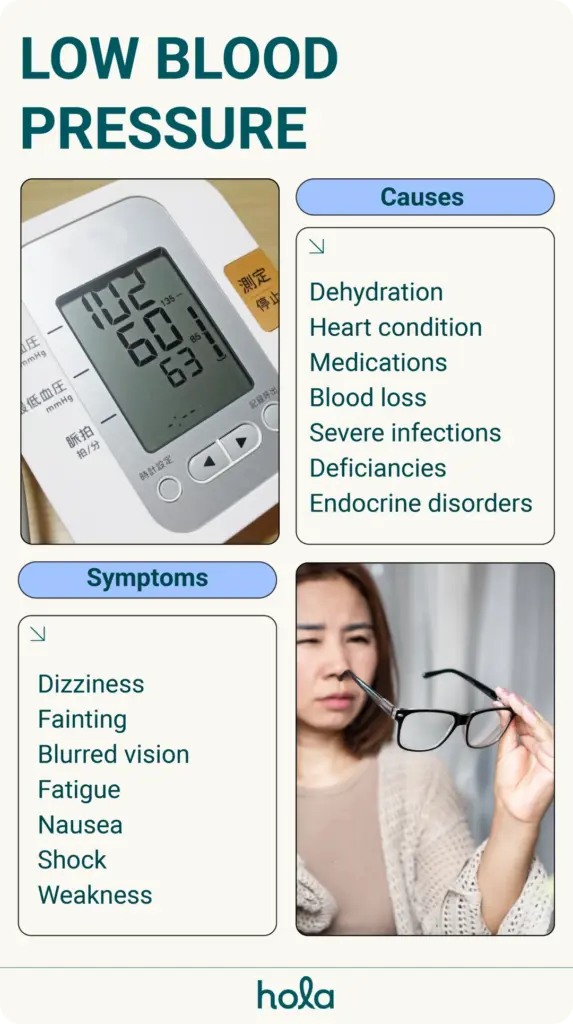
Prevention tips
If hypotension is causing symptoms, here are some ways to manage it:
- Stay hydrated: Drink plenty of fluids, especially water, to maintain blood volume.
- Increase salt intake (If recommended by a doctor): In some cases, more sodium can help raise blood pressure.
- Eat small frequent meals: Large meals can cause postprandial hypotension (a drop in blood pressure after eating).
- Avoid sudden position changes: Stand up slowly to prevent dizziness from postural hypotension.
- Wear compression stockings: These helps prevent blood from pooling in the legs.
- Review medications: Some drugs may need adjustment if they are contributing to low blood pressure.
Hola Health provides a fast and convenient way for you to see a doctor online in minutes, 24/7 across Australia. Much like an in-person GP clinic, our AHPRA-registered Australian online GP will conduct a comprehensive assessment to provide the best possible care, instantly.

Speak to our doctors 24/7
Providing consults for
Helpful resources
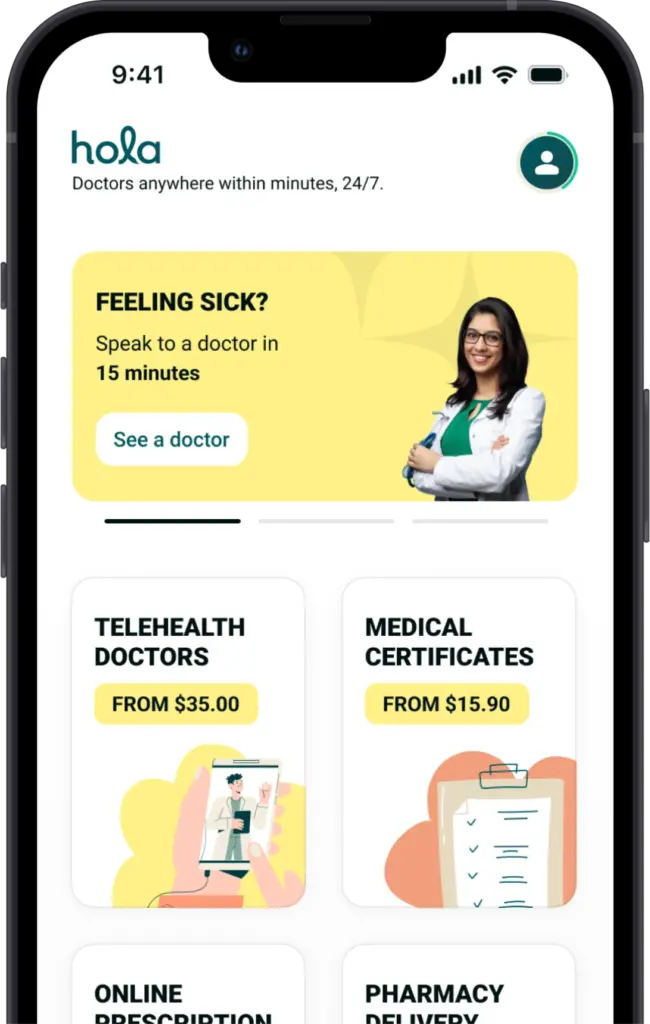
Download our Mobile App for better performance
- Book appointments instantly.
- Stay connected wherever you are.
- Experience healthcare, uninterrupted.
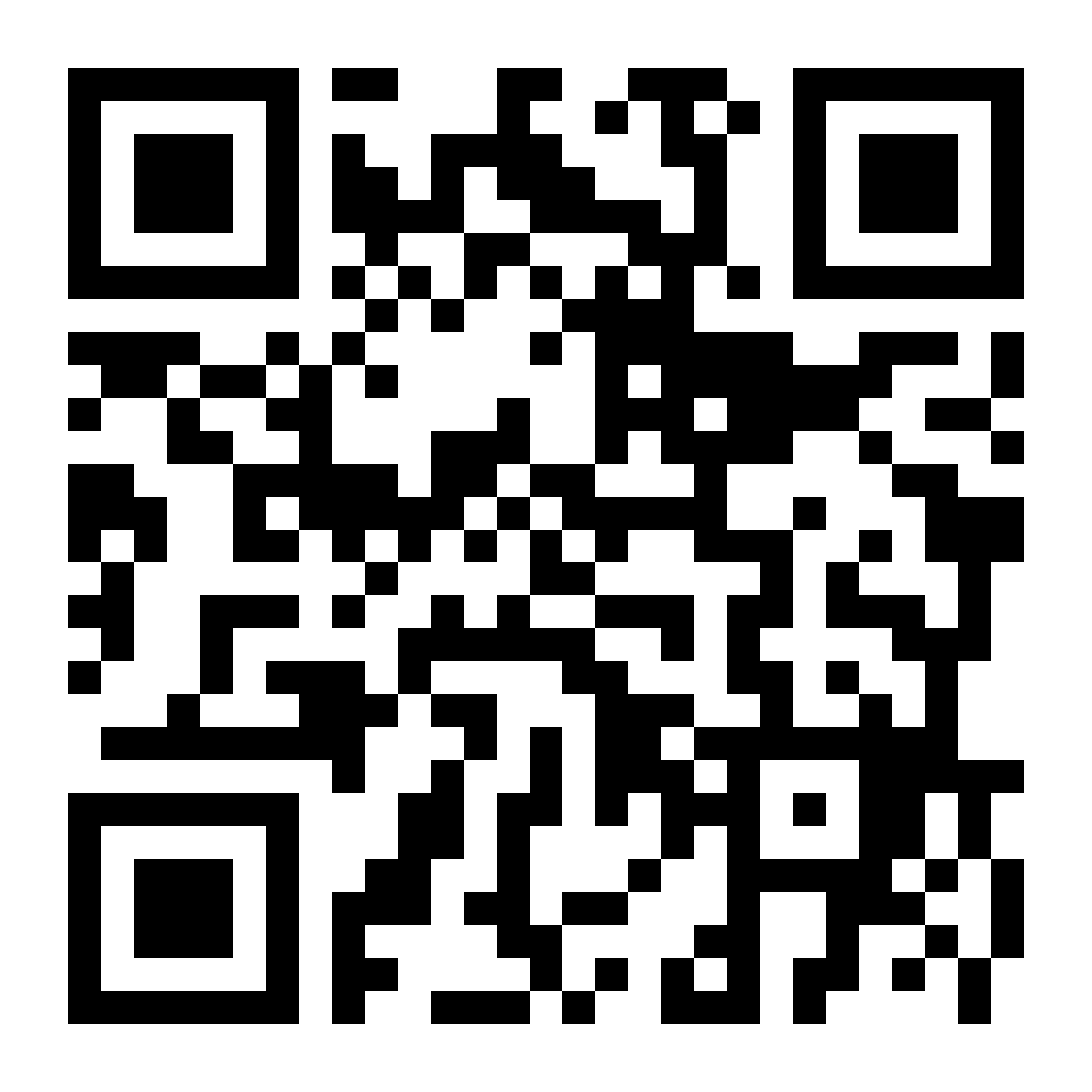 Scan the QR Code to download the app instantly
Scan the QR Code to download the app instantly 